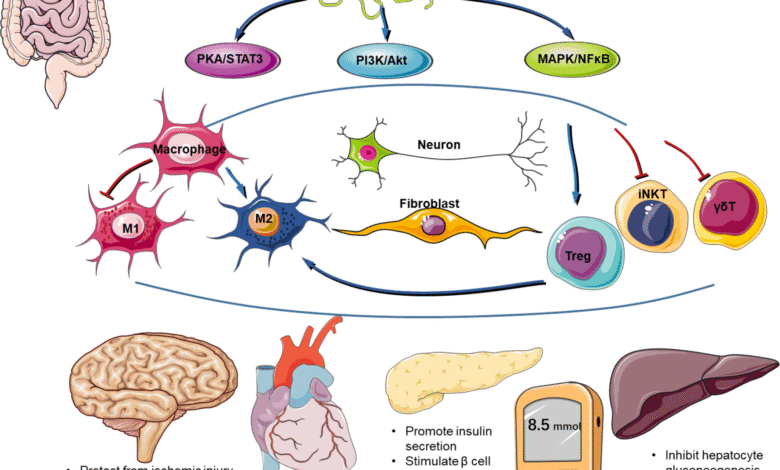GLP-1 Migraines: New Hope for Migraine Sufferers

GLP-1 migraines are gaining attention as innovative treatment options for those suffering from debilitating headaches. Recent studies indicate that GLP-1 drugs, typically used for diabetes management and weight loss, may significantly reduce migraine frequency. In a groundbreaking trial, the GLP-1 receptor agonist liraglutide was shown to cut the number of migraine days nearly in half, proving its potential beyond traditional applications. This revelation is especially promising for the 40 million Americans affected by migraines, signaling a new avenue in migraine treatment options that could offer relief to many. With continued research, these weight loss medications may emerge as a viable strategy for tackling migraines and improving overall quality of life.
The intersection of obesity, diabetes, and chronic headaches presents a unique challenge in the realm of medical therapy. Emerging evidence supports the idea that glucagon-like peptide-1 (GLP-1) drugs, such as liraglutide, often prescribed for weight management, could alleviate migraine symptoms effectively. As we delve deeper into this subject, the potential of these medications to serve dual purposes raises hopes for many migraine sufferers seeking relief. The implications of the recent study suggest not only a reduction in migraine occurrence but also an insightful exploration of how weight management solutions may influence headache conditions. By rethinking traditional migraine remedies, we may uncover novel pathways to improve patient care and wellbeing.
Understanding GLP-1 Receptor Agonists in Migraine Treatment
GLP-1 receptor agonists, such as liraglutide, have gained attention not only for their effectiveness in managing diabetes and promoting weight loss but also for their potential role in treating migraines. Recent research has shown that these medications can significantly reduce migraine frequency, offering hope to the millions who suffer from this debilitating condition. By targeting the pathways that contribute to neurovascular changes and intracranial pressure, GLP-1s could help alleviate the intense pain and associated symptoms of migraines.
This dual function of GLP-1 medications—addressing both weight management and migraine relief—positions them as versatile treatment options. With nearly 40 million Americans affected by migraines, as reported by the World Health Organization, understanding how compounds like liraglutide can be leveraged for migraine management is critical. Researchers continue to explore their mechanisms, aiming to clarify how these drugs can further benefit individuals suffering from not only migraines but also conditions such as obesity and diabetes.
Frequently Asked Questions
What are GLP-1 migraines and how does liraglutide help?
GLP-1 migraines refer to migraines potentially relieved by the use of GLP-1 receptor agonists, such as liraglutide. A recent study showed that liraglutide can significantly reduce migraine frequency, decreasing the number of migraine days from around 20 to 11 days per month in participants, suggesting it could be a viable treatment option.
Can liraglutide be effectively used as a migraine treatment option?
Yes, liraglutide has shown promise as a migraine treatment option. In a study presented at the European Academy of Neurology Congress, patients reported a decrease in headache days, indicating its potential effectiveness beyond its primary uses in diabetes management and weight loss.
What role do GLP-1 receptor agonists play in reducing migraine frequency?
GLP-1 receptor agonists, like liraglutide, may reduce migraine frequency by alleviating pressure inside the skull, a possible trigger for migraines. The promising results from trials highlight their potential role in migraine management.
Are there any side effects associated with using liraglutide for migraines?
Mild gastrointestinal side effects were reported in 38% of participants in the liraglutide study, but these did not lead to treatment discontinuation. Monitoring for side effects is important when considering GLP-1 medications for migraines.
How effective is liraglutide compared to other weight loss medications for managing migraines?
While liraglutide is not as effective for weight loss as newer GLP-1 medications like Ozempic and Mounjaro, its ability to penetrate the brain and potentially reduce migraine symptoms makes it a unique option among weight loss medications.
Will future studies explore more GLP-1 migraine treatment options?
Yes, further research, including randomized double-blind trials, is planned to evaluate the effectiveness of liraglutide and other GLP-1 drugs in treating migraines, focusing on efficacy and the profile of side effects.
How do GLP-1 medications like liraglutide compare to traditional migraine treatments?
GLP-1 medications like liraglutide offer a novel approach in migraine treatment by uniquely addressing migraine frequency reduction while also being tied to weight loss management, which traditional migraine treatments may not provide.
What is the significance of the small study presented on GLP-1 migraines?
The small study presented on GLP-1 migraines marked a significant exploration into the potential of GLP-1 receptor agonists, specifically liraglutide, as an alternative method for managing migraines, showing a substantial reduction in migraine days for participants.
Is liraglutide commonly prescribed for migraine management?
Currently, liraglutide is not commonly prescribed specifically for migraine management, but recent findings may encourage healthcare providers to consider its use alongside conventional migraine treatment options in the future.
| Key Point | Details |
|---|---|
| Study Overview | A small study presented at the European Academy of Neurology Congress found that a GLP-1 drug reduced migraine days by nearly half. |
| Participants | 31 adults (26 women) were involved, receiving daily liraglutide injections for 12 weeks. |
| Migraine Frequency Reduction | Headache days decreased from an average of 20 to 11 days per month after treatment. |
| Weight Stability | Participants’ weight remained stable over the trial, indicating headaches weren’t linked to weight loss. |
| Side Effects | 38% experienced mild gastrointestinal side effects, which did not lead to treatment cessation. |
| Future Research | Further studies are planned to assess the drug’s effectiveness and explore other GLP-1 options. |
Summary
GLP-1 migraines are becoming a new area of interest as recent studies suggest that GLP-1 drugs, traditionally used for diabetes and weight loss, may significantly reduce the frequency of migraine attacks. The findings from the recent study highlight a promising avenue for migraine relief and call for further exploration to better understand the potential benefits of GLP-1 treatment.




